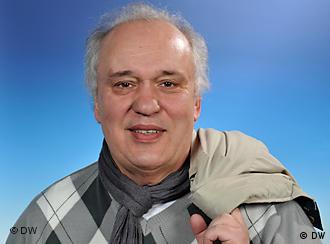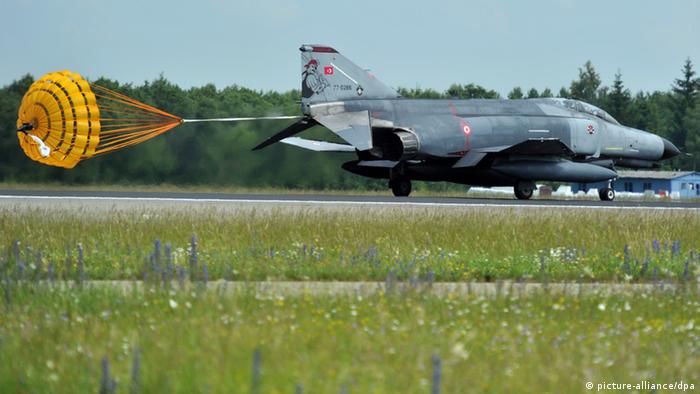Following the shooting down of a Turkish plane by Syria, Turkish Prime Minister Recep Tayyip Erdogan has begun rattling a few sabers. DW's Baha Güngör thinks this only adds to the risks the region is facing.
For a few days, the world was astonished at Turkey's moderate reaction to the shooting down of one of its military reconnaissance planes by Syria. But diplomatic ties between the two neighbors soon returned to their default state - increasing tension.
Turkish Prime Minister Recep Tayyip Erdogan bowed to the pressure from his domestic opposition, and his militaristic threats don't augur well for the future. As of now, if a single Syrian helicopter crosses into Turkish airspace somewhere along the two countries' 800-kilometer (500-mile) border, it can expect to be shot down without mercy.

Baha Güngör of DW's Turkish service
A direct military conflict between Turkey and Syria will perforce lead to NATO's involvement. If Turkey, a member of NATO since 1952, were to come under serious threat, it would be able to make a claim for support from the alliance - as it did in 2003 at the start of the Iraq war. Then as now, the Turkish request would provide a justification for NATO to station its air-borne radar system AWACS and its Patriot anti-missile missile system on Turkish soil.
But the conflict is not just a bilateral one between Turkey and Syria. President Bashar al-Assad's regime in Damascus is under serious international pressure and is trying to win time for itself with the help of Russia and China. The attempt is unlikely to succeed. As a result, Erdogan's saber-rattling considerably increases the level of risk in the region.
Chain of dangers
Turkey has been at war with the Kurdish separatists based in Northern Iraq for the past 18 years. That means that Turkey would have to open a second front against Syria - making the total length of the border it needs to defend well over 1,000 kilometers.
No-one can say right now how Iran - that other international problem child - will behave. It's hardly likely that Iran will simply stand by while AWACS planes hover overhead and Patriot rockets are deployed in Anatolia. It's a chain of risk with incalculable consequences that would stretch well beyond Iraq to Israel and the Arab states.
Erdogan's threats make it less likely that the Assad regime will soon collapse so the world can breathe a sigh of relief. And they do not do Turkey any good - it has done well economically throughout the international financial crisis, but it seems now to be putting its credibility to the test. The two Iraq wars caused Turkey serious economic damage from which the country only recovered with difficulty.
Author: Baha Güngör / mll
Editor: Ben Knight DW DE
Editor: Ben Knight DW DE

Comments